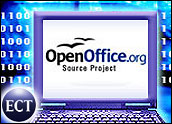
Microsoft CEO Steve Ballmer provided the keynote speech for the Massachusetts Software Council’s (MSC) annual fall membership meeting Wednesday, and used the forum to discuss how the company views Linux, as well as to address Longhorn delays and security concerns.
In the speech, given in front of an audience of more than 700 of the state’s technology community members, Ballmer covered much terrain, delving into the future of IT spending, and research and development directions. The speech was not entirely nonpromotional; Ballmer also talked about the benefits of Microsoft partnerships.
Joyce Plotkin, MSC president, told LinuxInsider that the group regularly brings such heavy hitters to its membership meetings, and that past speakers have included Bill Gates and Steve Jobs. Ballmer was invited because Microsoft is a member of the local council, and reaction to his speech was predominantly positive. “Our members appreciated the opportunity to hear his view of the world,” said Plotkin.
Penguin Trash Talk
One of the largest components of Ballmer’s speech concerned Linux, which is not surprising given Microsoft’s increasing focus on the area. “Microsoft is realizing that they have to fight Linux on every front,” Yankee Group analyst Laura DiDio told LinuxInsider. She added that Ballmer has been especially vocal on the topic.
In the past, Ballmer has called Linux a “cancer,” but his remarks to the MSC were not so controversial. He emphasized Microsoft’s view that there is widespread misperception about the total cost of ownership of Windows as compared to Linux.
He cited research done by Forrester and Gartner that supports Microsoft’s position, and which is heavily referenced on a company’s site titled “Get the Facts on Windows and Linux.”
Plotkin noted that Ballmer’s decision to address the topic of Linux could be viewed as brave.
“Massachusetts is considered one of the centers for open source,” she said. “I thought it was important, and even courageous, for Ballmer to come to Massachusetts and address the issue head on.”
In Security
Another theme for Ballmer’s talk was security. “This is a big issue that Microsoft needs to address,” said Plotkin. “So I thought it made sense that he would touch on that.”
Ballmer included Linux in his security remarks, saying that open source would probably be attacked as frequently as Windows if it possessed similar market share.
“Whatever is popular is going to be attacked,” he said.
He also expressed an opinion that the open-source community lacked a defined process for addressing security concerns, unlike Microsoft, which devotes much attention and energy to patching vulnerabilities.
He added that the company has made security its top priority, saying that the issue affects Microsoft’s business as well as its quality control. Security comes up in customer conversations twice as much as any other topic, Ballmer said.
DiDio noted that security is a theme that Microsoft will have to cover often with users. As vulnerabilities are found in the company’s products, there should be more speeches like Ballmer’s.
“They know that they have to talk about security, and often,” said DiDio. “Users aren’t tired of the topic.”
Future Think
A major topic during the speech was the future of technology, and Ballmer noted that he believes there will be many positive changes in the next 10 years. Specifically, he predicted that software advances would bring changes in communication that would boost productivity in many fields.
Not surprisingly, Ballmer said that Microsoft products would have a major role in the evolution of technology. Although he joked about feature cuts in Longhorn, as well as the product’s changing release date, Ballmer noted that the operating system would be key for bringing technology forward.
Other Microsoft promotion was apparent as Ballmer touted Microsoft’s ability to create products with a high degree of interoperability with other technology.
Plotkin noted that it did not sound like a sales pitch when Ballmer spoke about what the state’s companies could gain from an alliance with Microsoft.
“He was reaching out to this group to say this is what we offer, this is how we want to work with you,” she said. “We were delighted by what he had to say.”












































Still can not fathom how a company so bad at security can even think that talking trash about Linux security would be a good thing. Do they really understand how many experenced IT people like myself are laughing at them everyday? And then there is the cost of ownership…. even a bigger laugh…. Hey dummies at MS…. Your old customers are laughing at you. Next year is going to be even harder than you think….. if you don’t shutup, and fix your mess, you call Windows…
Ballmer is right, whatever system that is popular will be attacked frequently.
However, he fails to mention that the attacks will only be succesful on badly designed systems. And Linux is not in that category. Today several Linux distros follows Common criterea EAL3+ or better putting them in the same category as Trusted Solaris.
The reason for this quite recent increase in security is that the SELinux extension originally developed by NSA now ships with every new Linux kernel and provides mandatory access control. It is now for the security policy to decide if a program may open network connections, what files a program may or may not see, what files a program may alter or execute, what new processes that can be spawned, all this regardless what user that is trying to do it. There is no longer a superuser that can control everything. This makes it much harder for the attack
E.g. it is quite simple to disallow your browser or e-mail program to run executable code that it have downloaded.